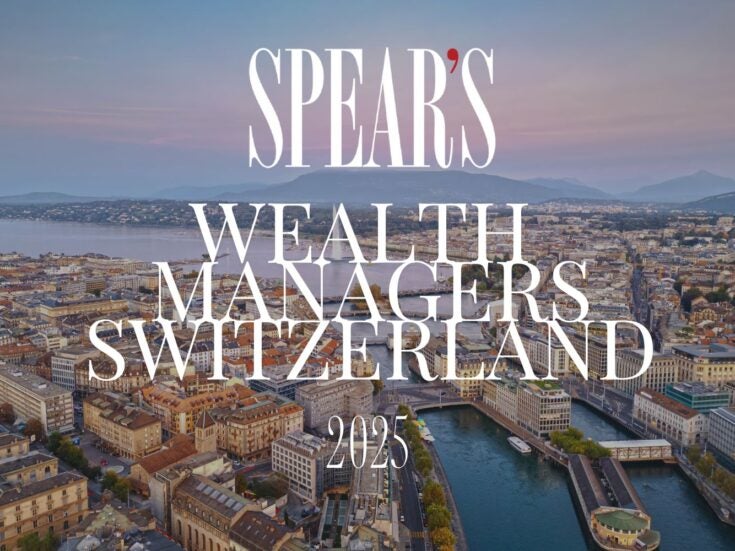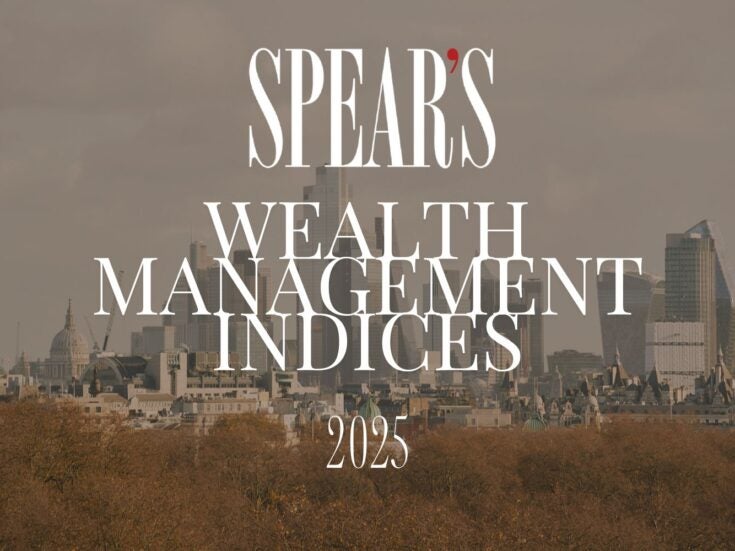
Freddy Barker on the origins — and the ghastly consequences that must follow — of a global financial system built on little more than debt and wishful thinking
THOUGHT THE CREDIT crunch was bad? Well, a growing body of evidence suggests that it was merely the warm-up act to the coming recession, which will mark the culmination of 30 years of boom and bust in the West. This will be based not on the very specific financial engineering blips in securitisation and shadow banking that we all read about in 2008, but instead on a deeper story about debt which makes Western economies in the post-Thatcher/Reagan era look like little more than grandiose Ponzi schemes.
It all started with two government policies. First was Friedman’s market fundamentalism, which rejected all top-down intervention and argued that unregulated markets automatically equilibrate to produce the optimal business environment. The policy’s adoption by Thatcher and Reagan in the Eighties meant that cigar-chomping bankers were given free licence to do whatever they wanted; it was commerce without conscience. Little wonder, then, that in search of ever higher profits they leveraged up to the point that by the start of the century UK bank balance sheets were more than five times GDP.
The laissez-faire fiscal approach was reinforced by monetary policy post-millennium. Under the auspice of the Greenspan and Bernanke ‘put’ (a reference to a type of derivative that protects investors from sharp price falls), banks were incentivised to gear up in the knowledge that every time a setback hit, the Fed chairman would cut interest rates and flood the market with liquidity until the economy recovered.

The combined effect led to a debt super-bubble as even sensible investors, appreciating that interest rates falling from 20 per cent in the Eighties to 0.5 per cent today made it cheap to borrow and pointless to save, realised that they must either swim with the tide or be drowned by it.
‘When total debt is looked at — that is, debt held by the household sector, the corporate sector, the banking sector and the government — the UK is more in hock than any other country in the world,’ says John Mauldin, author of Endgame, which looks at the obstacles facing various countries as they attempt to tackle what he calls the ‘debt supercycle’. ‘Total debt in the UK stands at a migraine-inducing 4.7 times GDP — and this is before we add in unfunded liabilities taken on by the government, which could take the debt figure to over 6.5 times GDP.’
Credit in itself is no bad thing, but the fact that it has fuelled Western economic growth for 30 years is deeply disturbing. The policy is akin to drug abuse: it gave a cheap high to begin with, but over time stronger and stronger doses were needed to produce the same results and before anyone knew it, the elixir had become so intoxicating that excessive amounts were warranted merely to function. This explains why the credit crunch, the latest and largest in the chain of recessions, has been so savage.
The only reason that the cycle didn’t unwind was that we emptied the larder to feed the beast. Using the very same policies that market fundamentalism argued were redundant — liquidity injections, debt guarantees, deposit insurance and asset purchases — over $14 trillion, or a quarter of global GDP, was pumped into Western banks. In the process, UK debt-to-GDP broke 1976 levels (when we had to get £2.3 billion from the IMF) and the Bank of England monetised the budget deficit. Yes, it’s prevented the economy collapsing, but it’s merely shifted the problem sideways.

As the private sector deleverages, the government (or more accurately the unborn generation of taxpayers) is stepping in to reinforce the Ponzi pyramid. This raises worrying prospects, as the super-bubble crippled the world’s biggest businesses, so why shouldn’t it scupper elected bodies, too?
WHAT PROTECTS THEM is a veil of legitimacy. Not only are government defaults disguised as devaluations in the same way that corporate bankruptcies are disguised as restructurings, as Mauldin points out, but the authorities can also make up their own rules: for example, they report debt figures using cash accounting instead of accrual accounting, which means that they can ignore the damning future liabilities by merely publishing current capital flows.
The equation adds up to a potential bond crisis. If it materialises, we would see investors demanding higher interest payments to compensate for increased investment risk. This in turn would affect our ability to roll over debt and raise fresh capital. Whether or not it happens will depend on confidence, as there is no set debt-to-GDP figure at which investors baulk — Russia tanked at 57 per cent while the Japanese currently operate at over 200 per cent. But there are certain factors to look for. The maturity of debt and the profile of owners are, for example, key. Luckily for the UK, its average maturity of debt is fourteen years, which means that there is some breathing room. But fast change is always possible, as gilts are 30 per cent owned by foreigners.
Given that, the gilt market looks shaky at the moment, especially as the US had its long-term outlook downgraded in April for first time since Pearl Harbour. Some rainmakers such as Crispin Odey are shorting fixed income on the assumption that investors won’t want to accept record low rates of return to stand in the tower of debt as it collapses. But, the majority are still bound to their bonds, which means that the UK can run Portuguese-style deficits on German-style interest rates for the meantime.
The future looks bleak, though. If the UK is to grow out of the debt hole, the Chancellor needs a second industrial revolution, as Anatole Kaletsky notes in Capitalism 4.0. This leaves him with three options: inflate, default or devalue. Such an ill-fated choice illustrates that, as Pimco CEO Mohamed El-Erian puts it, we will see a ‘new normal’. In it, the UK must face up to the fact that it can’t grow the economy by lending credit to the very same people who couldn’t repay it last time; it must choose between solvent banks and increasing lending to small businesses; and it must tackle unsustainable welfare liabilities at the very time that baby boomers have the most voting clout. Turkeys may not vote for Christmas, but desperation must eventually win out.
So when will the great change crystallise? It’s not obvious that politicians yet understand that what imploded in the crunch were not just banks but also policies. Many are playing the same old game: most of the world has negative real interest rates (which means that they are in effect paying borrowers to take money off their hands). Thus full-scale change is likely to come not from within but from without, when our creditors threaten to pull the plug.
All that makes one wonder how one’s portfolio will respond to the next recession — the one that we will fight without weapons. Success will depend on spotting not whether it will happen, but when. For proof, look at the difference between John Paulson, the man who shorted sub-prime debt and made $20 billion, and Julian Robertson, the man who shorted tech stocks too soon and lost his hedge fund. The problem is that protecting your pension, or even profiting from it, comes down to market timing, which in turn depends largely on luck. Prices at the margin are driven by individuals, and their motives are as diverse as DNA.
Illustration by David Gibson







